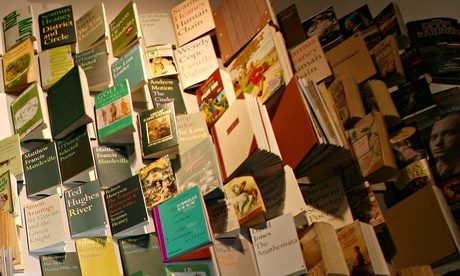
Carol Ann Duffy, poet and playwright
I would send Jimmy Boyle's visceral autobiography, A Sense of Freedom. It describes his journey from a violent, criminal youth to the degradation, shame and remorse he experienced in Scotland's most draconian prisons – and the redemption eventually delivered by literature and art in the special unit at Barlinnie. It is a book everyone concerned with this current debate should read when the most wretched of our fellow citizens, who have nothing, are now being told they have less than nothing.
Laura Wade, playwright and writer of the hit play Posh
If it was me in prison I'd want novels to escape into. The prisons minister, Jeremy Wright sneered last week: "Prisoners aren't sitting around wondering where their next Jane Austen novel is going to come from." Well, why shouldn't they enjoy funny, wicked Jane Austen? Or be surprised by a book they might never normally pick up?
But if something more modern is wanted, the last books I couldn't put down were the Hunger Games trilogy by Suzanne Collins – a story of courage in a fully imagined totalitarian dystopia.
Eric Allison, the Guardian's prison correspondent
I always say I began my education when I had my first serious prison sentence. Like many prisoners, I missed out on school after stopping going aged 11. I started with Howard Spring – he wrote books about the north, which rang a bell with me because I'm Mancunian – then Dickens and the classics. I suddenly thought, where have you been all my life? I just devoured books. It was an escape and enlightenment. Nowadays libraries aren't as well stocked or a priority, but they should be – around 50% of the prison population have a reading age of or below that of an 11-year-old.
If I had to send a book it would be Papillon by Henri Charrière. It's about a prisoner in the French penal system, and if you read it when you're in a UK prison, you'll think yourself pretty lucky.
Colin Thubron, travel writer and novelist
My choice would be E Annie Proulx, The Shipping News. This feisty novel features an ungainly misfit – fallen on hard times – who rebuilds his shattered life not by a pious reintegration into society but through his own (eccentric) talents and personality. A story of redemptive hopefulness.
Alan Smith, former prison teacher and author of Her Majesty's Philosophers
I found that Paradise Lost never failed with the chaps I taught. Read the bits with Satan in it – Satan heaves himself up from that burning lake of fire and he looks up to where he thinks God might be and he says: "I reck not". He's full of defiance and bravery. Of course, a lot of guys just like a good story, perhaps something by Elmore Leonard. It depends on your prisoner – like anyone, they read for all kinds of reasons.
Maggie Fergusson, director of Royal Society of Literature
I'd recommend Stuart: A Life Backwards by Alexander Masters. It's an incredibly sad story, but it shows the beauty of the human spirit under the most inauspicious of circumstances. It's about an unlikely friendship between Stuart Shorter, an ex-homeless ex-junkie, and Masters, a reclusive Oxbridge writer – "middle-class scum ponce". It's a feat of understanding on both sides and is one of the most moving and original books I've ever read.
Alex Quigley, English subject leader at Huntington school in York
I'd send To Kill a Mockingbird, by Harper Lee, or The Book Thief, by Markus Zusak. I've taught both books myself – they're about empathy, stepping into someone else's skin and understanding violent and difficult events. The Book Thief follows Liesel as she steal books for a Jewish person who is hiding in a basement. It celebrates stories and their ability to free the mind and the heart. There are some ironic parallels between the book and what Grayling is doing today.
Mark Haddon, novelist, best known for The Curious Incident of the Dog in the Night-Time
In celebration of the work of Storybook Dads, a scheme that gets dads in prison to read books to their kids via cds or dvds, I'm going to choose the book I most loved reading to our children, Zagazoo by Quentin Blake.

